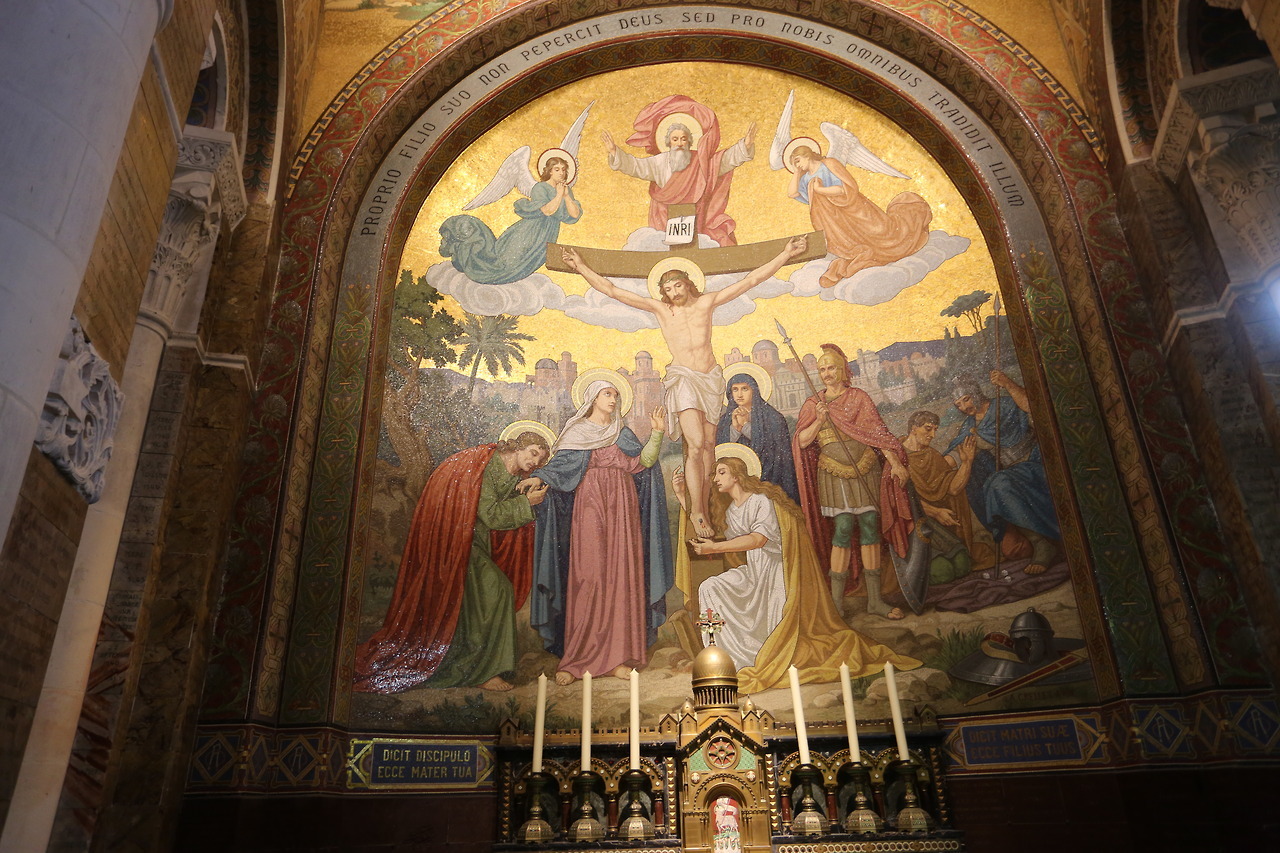Jer. 20:7-9; Ps 63:2-6, 8-9; Rom. 12:1-2; Mt. 16:21-27
God wants you! God knows you and calls you by name, but it is not the name of our childbirth. God has a name for us. Do you know your name? God wants you and I, mind, heart, and body, our whole being to be the sacrifice we offer up to him. God does not settle for less but for the best of ourselves that we can be for his glory. God is ready for us to “be transformed by the renewal of your mind, that you may discern what is the will of God, what is good and pleasing and perfect”. Are we ready for God? Are we ready to surrender to his will, his vision for us, the calling that belongs to us? The Father of life creates life with a divine purpose and he is waiting for us to receive him that he may “enlighten the eyes of our hearts and we may know what is the hope that belongs to our call.”
God’s call for you and I is a personal call, he knows us by name and he desires us to discover that name. What is in a God given name? It is not the name of our childbirth but a God given name that comes with a divine purpose. We should pray to know God’s name for us that we may respond to the call that comes with that name. Abram’s name meant “high father” but Abraham means “father of many”. Jacob’s name means ‘deceiver” having deceived his twin brother as heir to the birthright but changed to Israel meaning “one who struggles with God” because he overcame his struggle with God and with humans and was transformed into God’s faithful servant.
When we bring a child for baptism we are asked “what name do you give your child?” We often don’t consider a spiritual meaning to our child’s name. In the past children were often given a name for the saint of the day as one of two names and many girls carried the name Mary as one of their two names. This tradition has been forgotten in our times but we see it still in religious orders and when the Popes give to themselves a new name. In the secular world people have no problem renaming themselves but it has nothing to do with God’s call and more for self-glorification. Yet Jesus reminds us “what profit would there be for one to gain the whole world and forfeit his life?”
In every human soul there is a warrior spirit to carry the fight. This warrior spirit comes from God with a divine purpose to love, serve, and sacrifice. What we love we will sacrifice for and it will serve a greater purpose than ourselves. We sacrifice for our family out of love and serve each other that all may be united as one. This is God’s call that we may all be one in him. Jesus however calls us to love, serve, and sacrifice beyond our family to the degree of self-denial to “take up his cross and follow me”.
Today, Jeremiah is suffering an interior crisis in accepting his call to be a prophet for the Lord. He calls out to God, “You duped me, O Lord, and I let myself be duped.” Recall when a child comes about to ask for something there is a different pitch in their voice and so is in a spouse. You know something is coming yet out of love of the person we accept being “duped” because we cannot resist their love. This is Jeremiah’s reaction to God. Jeremiah could not deny the Lord his calling knowing he would be persecuted. In his weakness he wanted to remain silent but he could not contain himself what he knew was the truth God had revealed to him. Even in weakness he understood there was only one right choice in serving God. Do we recognize the choice God is asking of us this day? In prayer we “discern what is the will of God, what is good and pleasing and perfect” obedience to his call.
Suffering and dying to oneself will bring us to a crossroads where we will experience an interior crisis of faith, hope and love. It presents in the many faces of suffering through sickness, death of a loved one, betrayal, persecution, rejection, even abandonment being forgotten as we age. In the dark night where can we go, who can we turn to who truly knows us as we are but the one true God who brought us into this world and will come to take us with him. A crisis of faith is a calling out to God to rescue us from our very selves, to see ourselves as he sees us, his love, mercy, and passion that died for us and will never abandon us. The God we trust more than ourselves. God now and forever.
Jesus is calling us to follow in his footsteps by being a warrior for what is good, pleasing, and perfect love of God. When Peter takes Jesus aside and tries to rebuke him, he speaks as “human beings do”. This is the same Peter who just before spoke through the Holy Spirit that Jesus was the “Christ, the son of the living God.” How quickly he has returned to his human way of thinking. How quickly we can lose focus of God’s call and will for us and become immersed in our own world unless we remain constantly coming to receive him in word, sacrament, and in prayer. Peter reminds us that Satan never rests from being a distraction in the least and on the attack at worst.
The universal church is under attack around the world. In some places public worship is not allowed and the attack is from outside the church. Most recently we had the Little Sister of the Poor having to defend their faith and practices all the way to the Supreme Court. Traditional church values have been targeted as “extremist” and compared to “terroristic threats”. Attack from the outside however is nothing new if we think back to the persecution of the early church. The more it was persecuted the stronger and greater it grew. This mystery is the fruit of sacrifice that came from the cross and martyrdom. This calling remains today. We are to not fear Satan from the outside.
We are to be vigilant of Satan coming from the inside under the shadow of progressiveness. Change can be good but it also can be the work of evil. Jesus reminds us “I am sending you out like sheep among wolves; so be wise as serpents, and innocent as doves”. Change that is self-serving is not the will of God. The innocence of a warrior dove is that it delivers the “truth” as revealed by God and not by man. A wise serpent recognizes the conduct of the evil serpent and is ready to be stand firm even at the cost of itself. God wants you and I to stand firm and may our name be revealed with holy meaning that stands with and for Christ.
God calls us by name so consider what God’s name for us is today. God’s naming reflects his purpose and today he may be calling us “prayer warrior, voice of justice, fearless faith, comfort to the suffering, mercy to the unjust, hope in persecution”. Most of all he calls us his own.




Recent Comments